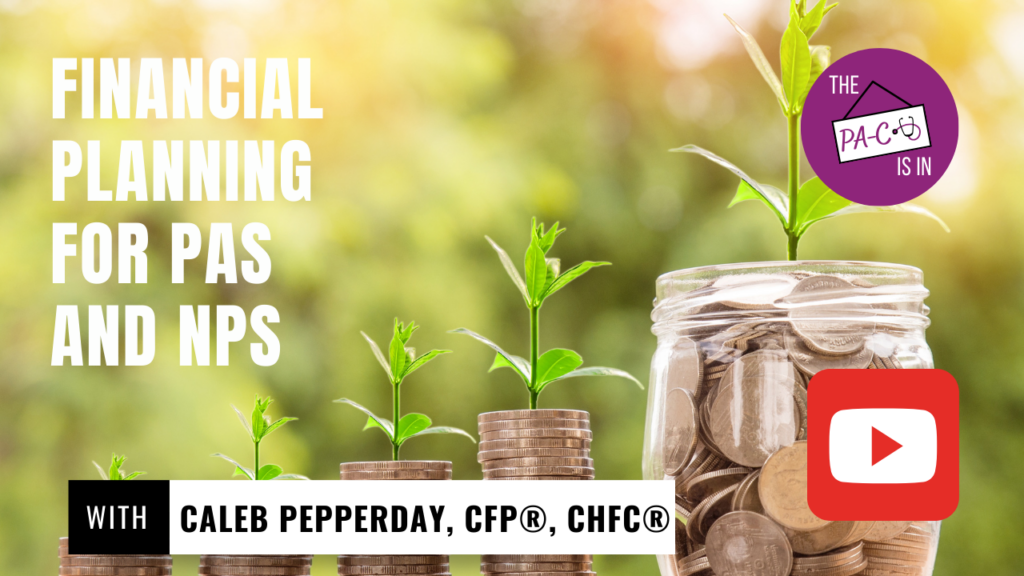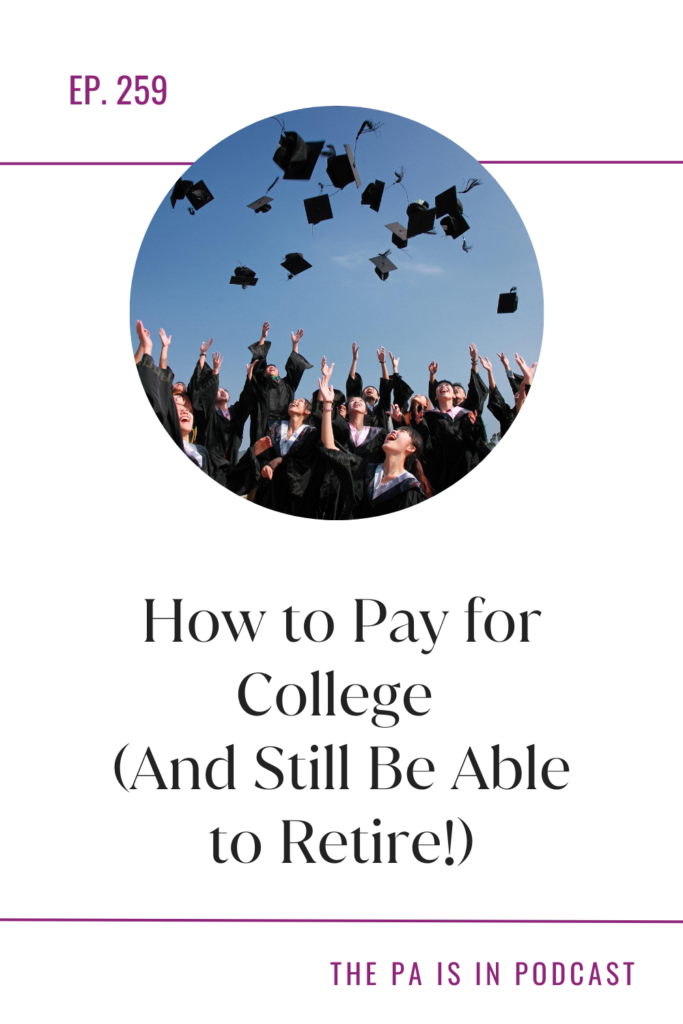
Listen to the Podcast: Apple Podcasts | Spotify
Watch On YouTube

Meet Ann Garcia, CFP®
Ann Garcia is a fee-only fiduciary financial advisor and go-to expert on paying for college. She is the author of the critically-acclaimed book, How to Pay for College, and a sought-after media guest who’s been quoted in the New York Times, the Wall Street Journal, and U.S. News and World Report, to name a few. As a parent whose twins just graduated debt-free from college, Ann’s expertise expands beyond FAFSAs and 529s — she understands the emotional components of helping your child set and achieve goals for their future.
As a certified financial planner, Ann found herself helping two main groups of people: parents trying to figure out how cost of college savings and how to fit that into their budget as well as young adults trying to figure out how to pay for their student loans amidst other financial goals.
Ann realized if she can help the first group (parents saving for college), she would see less of the second group (young adults with student loans).
Why Is College So Expensive?
There is a 500% increase in the cost of public college tuition from 1986 to 2016. This is due to a variety of reasons:
- Decreased funding from states – there are more caps on property tax and income tax
- Hiring more faculty, administrative staff, and counselors
- Building new facilities as more students are enrolled
But the biggest reason: people are willing to pay. If no one was willing to pay such high tuition costs, then colleges wouldn’t charge so much
However, there are two different prices to look at when it comes to college tuition: the list price and the net price. The net price is what we actually pay. Thankfully, the net price of college hasn’t changed from 2008-2009.
The majority of students receive a tuition discount, usually in the form of a scholarship or grant. Families are also more savvy about cost/benefit tradeoffs. They’ve learned that paying more for college doesn’t mean you’ll make more in your career.
How to Determine Budget for College
The most important thing in choosing a college is not what name is on the diploma, but what relationships you are going to build as a student. A recent study by the Purdue Gallop Index looked at the correlation between successful adulthood and college experiences. It found that success had no correlation to college, but instead to types of experiences. These experiences include mentors, long-term projects, applying classroom learning outside the classroom, extracurricular activities, and friendships.
There are over 4000 different colleges in the United States. Instead of focusing on the name of the college, focus on the opportunities and experiences the college offers for your child. Remember that you can go to college for any price, and you have control over what that price is. Families who save for college in any amount not only have students enroll in college at higher rates, but also graduate from college at higher rates.
Paying for college tuition is a combination of savings, out of pocket, and student loans. When making your budget, look at all three of these. Don’t wait until 12th grade to start thinking about college savings. Middle school is a good time to start because you have several years to plan.
What can you afford out of pocket? How many years of college can you pay for out of pocket? What tuition rate could you cover? What do you already have saved and what is that projected to be when your child starts college?
If you don’t like where you are – can you increase your savings? Ask for 529 gifts from family. Adjust your budget to increase college savings. Be realistic with college choices with your child. Include your child in the conversation around saving and planning for college.
Ann recommends that every family have emergency savings, retirement savings, and college savings – in that order. If you don’t have any emergency savings, then don’t start saving for retirement or college yet. If you don’t have retirement savings, focus on that before you start saving for college.
WHY College, Not WHICH College
Which college you go to is not as important as the fact that you went to college. Those with a college degree make $1 million more over their lifetime than those without. The unemployment rate for college graduates is half those without college degrees.
College graduates also live longer and healthier lives than those who didn’t go to college; they have lower rates of type II diabetes and cardiovascular disease. College graduates are also more likely to marry and less likely to divorce.
HOWEVER, people who take out excess student loan debt to pay for college don’t see these benefits.
Savings Strategies
Ann’s top saving strategy for college is a 529 plan. The benefits of a 529 include:
- State tax credit or deduction
- Very easy to set up and to create monthly contributions
- Growth and withdrawals are tax-free
- Easy to set up gift options for family or friends
- Beneficial for financial aid
Another option is a traditional savings account; however these have very little interest earned. They won’t keep up with inflation of the rising cost of college.
Paying off Student Loans
Healthcare workers have many options for paying off their own student loans while saving for their children’s college.
Ann recommends to see what loan forgiveness programs you’re eligible for and to look into income-based repayment plans. Remember to use pre-tax retirement savings to reduce your taxable income, which is especially important if you’re in an income-based repayment plan.
Connect with Ann
- Book: How to Pay For College
- Website: howtopayforcollege.com
- Facebook: https://www.facebook.com/collegefinanciallady
- Instagram: https://www.instagram.com/collegefinanciallady
Other Posts and Videos You’ll Love
Episode 252: Top 6 Personal Finance Vital Signs: Back to Financial Basics: Listen to the Podcast | Watch on YouTube
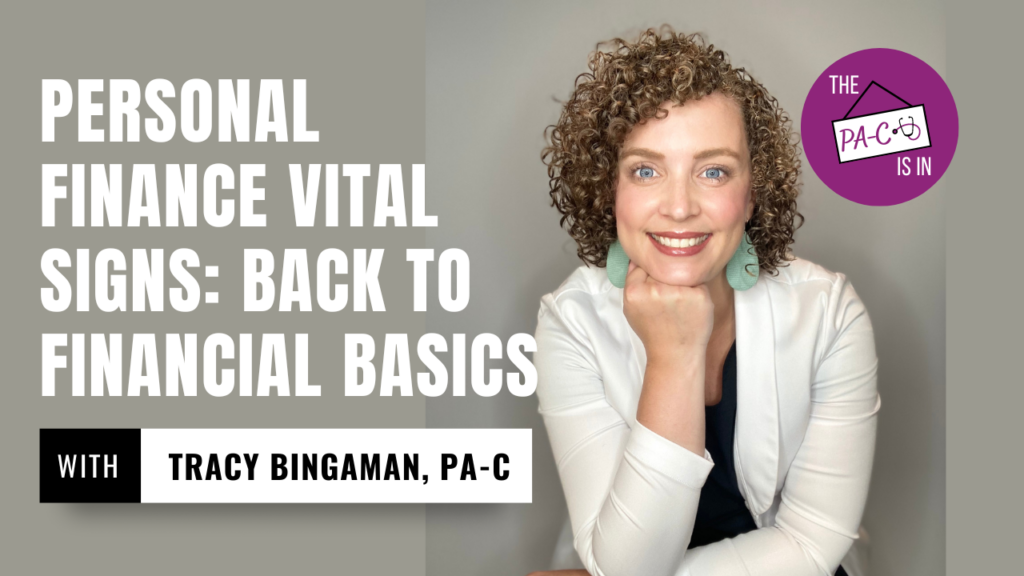
Episode 248: Emergency Fund 101 – Back to Financial Basics: Listen to the Podcast | Watch on YouTube
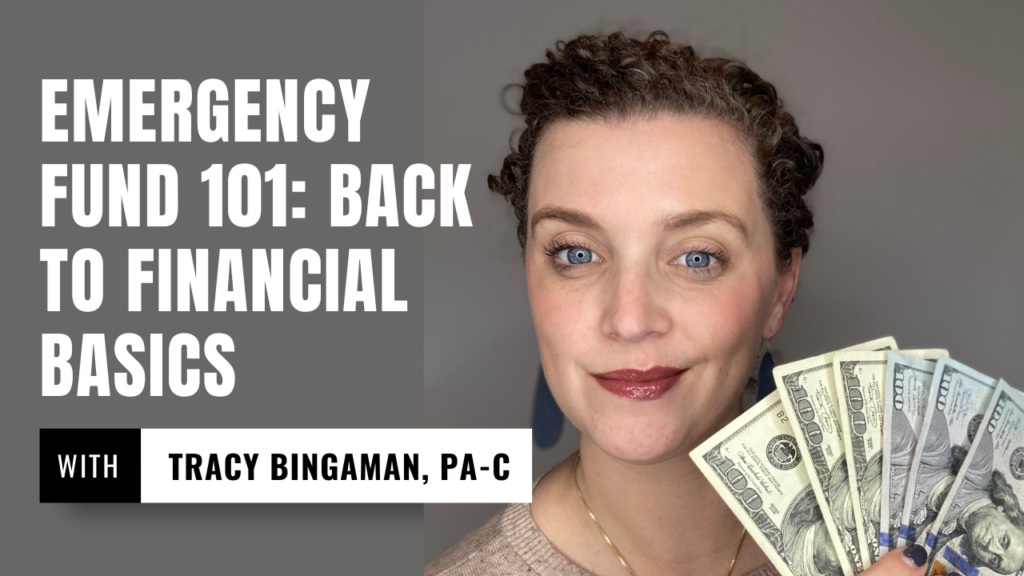
Episode 249: Student Loan Repayment – Everything You Need to Know: Listen to the Podcast | Watch on YouTube | Read the Blog

Episode 241: If You Want Better Financial Health, You HAVE To Do These Four Things: Listen to the Podcast | Watch on YouTube
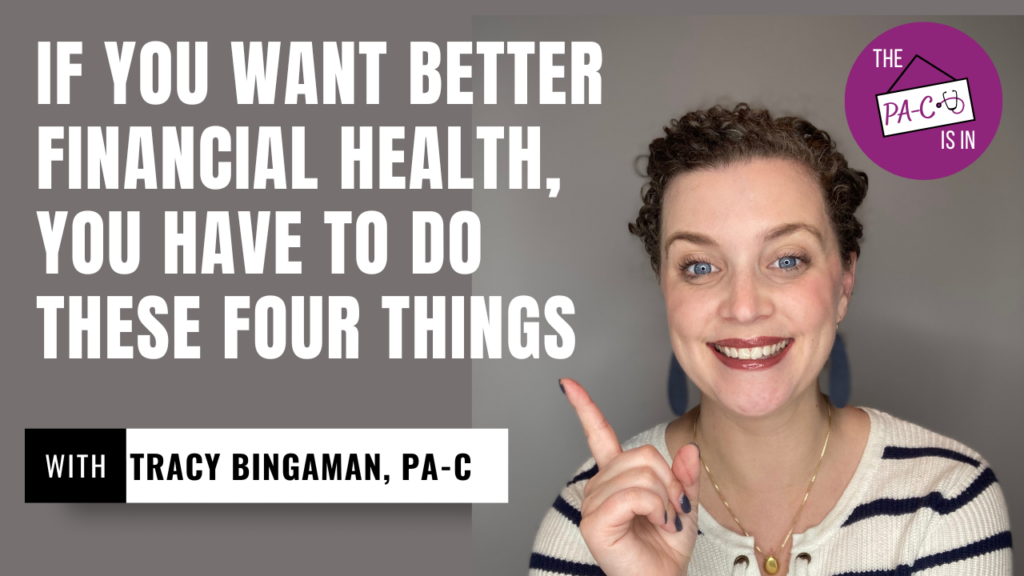
Episode 237: Financial Planning for PAs and NPs: Listen to the Podcast | Watch on YouTube | Read the Blog
